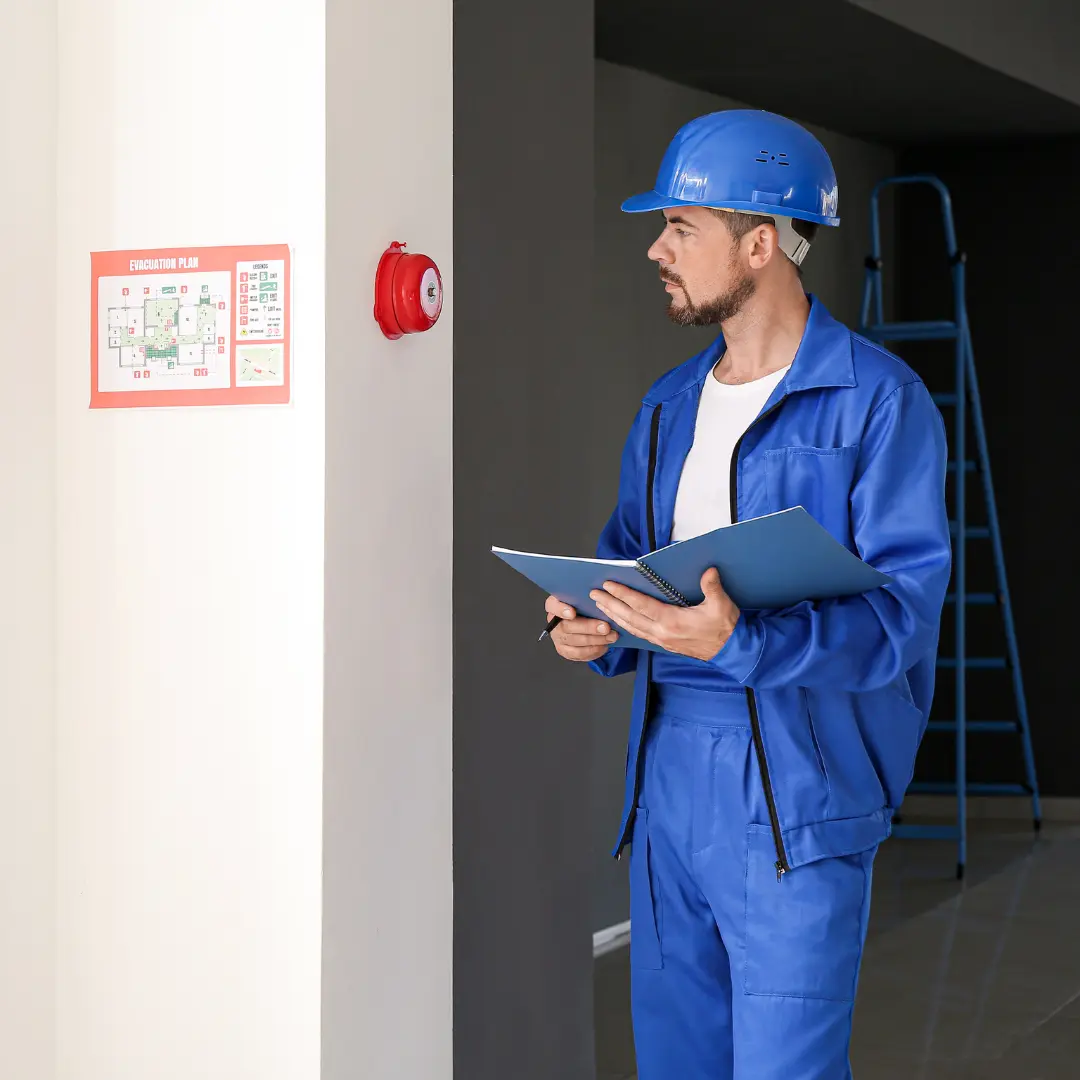Install Smoke Alarms: In HMO and rental homes, it’s crucial to comply with legal requirements regarding smoke alarms. Ensure that smoke alarms are installed on each floor, particularly in areas like bedrooms and hallways. Use long-life lithium batteries to minimize maintenance. Regularly test the alarms to confirm they are in working order. Replace batteries at least once a year and consider upgrading to interconnected alarms for maximum safety, where if one alarm goes off, all connected alarms will also sound.
Create an Escape Plan: Develop a comprehensive fire escape plan for the household, taking into account the layout of the property and the location of exits. Communicate the plan to all occupants and ensure everyone is familiar with it. Conduct regular fire drills, especially in HMOs where multiple individuals may be sharing living spaces. Practice the quickest and safest routes to exit the building in case of a fire, emphasizing the importance of quick and orderly evacuation.
Kitchen Safety: In shared living spaces, the kitchen can be a high-risk area. Emphasize caution by never leaving cooking unattended, especially in shared kitchens. Keep flammable materials away from stoves and cooking areas. Ensure all kitchen appliances are switched off when not in use, and consider the installation of fire blankets and fire extinguishers in easily accessible locations. Educate tenants on the proper use of these safety tools.
Electrical Appliance Safety: Regularly inspect and maintain electrical appliances in HMOs and rental homes. Check for signs of damage or wear on cords and plugs, and promptly replace any faulty components. Avoid overloading plug sockets, as this can lead to electrical fires. Encourage tenants to turn off electrical appliances when not in use, especially before going to bed, and provide guidance on responsible energy usage.
Heating Safety: Ensure that portable heaters in HMOs are positioned away from flammable materials and turned off when the room is unoccupied or when occupants go to sleep. If the property has a fireplace, it should be inspected and cleaned regularly by a professional. Advise tenants to use a fireguard to prevent sparks from escaping and to follow any specific guidelines for fireplace usage provided by the landlord.
Candle Safety: Given the shared nature of HMOs, it’s essential to stress candle safety. Instruct tenants to keep candles away from flammable materials and never leave them unattended. Provide stable candle holders to prevent tipping and encourage the extinguishing of candles before leaving a room or going to bed. Consider recommending flameless LED candles as a safer alternative to traditional candles in shared living spaces.
Secure Gas Appliances: For properties with gas appliances, ensure they are professionally installed and undergo regular servicing by qualified professionals. In HMOs, it’s critical to monitor gas safety due to shared utilities. Educate tenants about the signs of a gas leak, such as a hissing sound or distinctive smell. If a leak is suspected, advise immediate evacuation and contact the gas emergency helpline for assistance. Landlords should adhere to legal requirements for gas safety checks.

Landlords Checks has been providing safety certificates to happy customers for over 30 years. Specialising in Fire Risk Assessment (FRA), Gas Safety (CP12), Electrical Safety (EICR), and Energy Performance Certificates (EPC). London-Wide Coverage.
Copyright © 2025 Landlords Checks LTD. All rights reserved.



